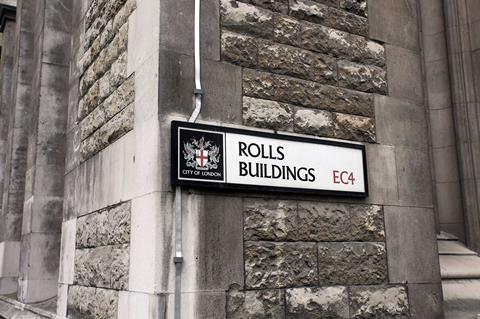Legal teams acting for both sides in a High Court case involving a claim by a UK-based Australian computer scientist to be the inventor of the Bitcoin digital currency have been accused of behaving 'like schoolchildren in the playground'.
In an excoriating costs judgment, His Honour Judge Paul Matthews condemned 'mud-slinging' by both sides, which he found 'not only unedifying but also somewhat underwhelming'. Lamenting a tendency towards 'bad-tempered litigation' he said: 'It somehow seems to have become acceptable for solicitors to become mere mouthpieces for their clients to vent their anger at their opponents. I simply do not understand why in 2022 professional, trained lawyers, who should know how to stand up to their clients, and concentrate instead on what is important in the litigation, think it is appropriate to behave like schoolchildren in the playground.'
The costs hearing arose from a ruling in December on a preliminary hearing in Crypto Patent Alliance v Craig Steven Wright. The action - one of several current cases involving Dr Craig Wright - is brought by a California-based organisation which is seeking a declaration that Wright is not 'Satoshi Nakamoto', the pseudonymous author of the 2008 paper setting out the Bitcoin mechanism.

In his judgment, Matthews declared that the Crypto Patent Alliance was overall the successful party in the hearing, but that Wright had submitted that the costs should be allocated for different components of the case. This prompted the judge to lament the 'recurring, but highly undesirable' tendency to 'argue costs issues... as if they were the main issue itself'.
'I am sorry to be old-fashioned, but when I started in practice, this kind of thing just did not happen,' he said. 'Pernicious' satellite litigation... 'has the effect of diminishing overall justice, and thus gives English civil procedure a bad name.'
Turning his fire on the size of the costs claimed, he described the claimant's figure of £122,834.78 as 'extraordinarily high'. For example, despite the 'bad-tempered' nature of the litigation, there was no need for five fee earners at the hearing. Noting that 21.1 hours were claimed for preparing the costs schedules, he said 'Something must have gone seriously wrong there. I will allow five hours.'
He summarily assessed costs at £70,000.
The case is expected to come to court next year.
This article is now closed for comment.



























16 Readers' comments